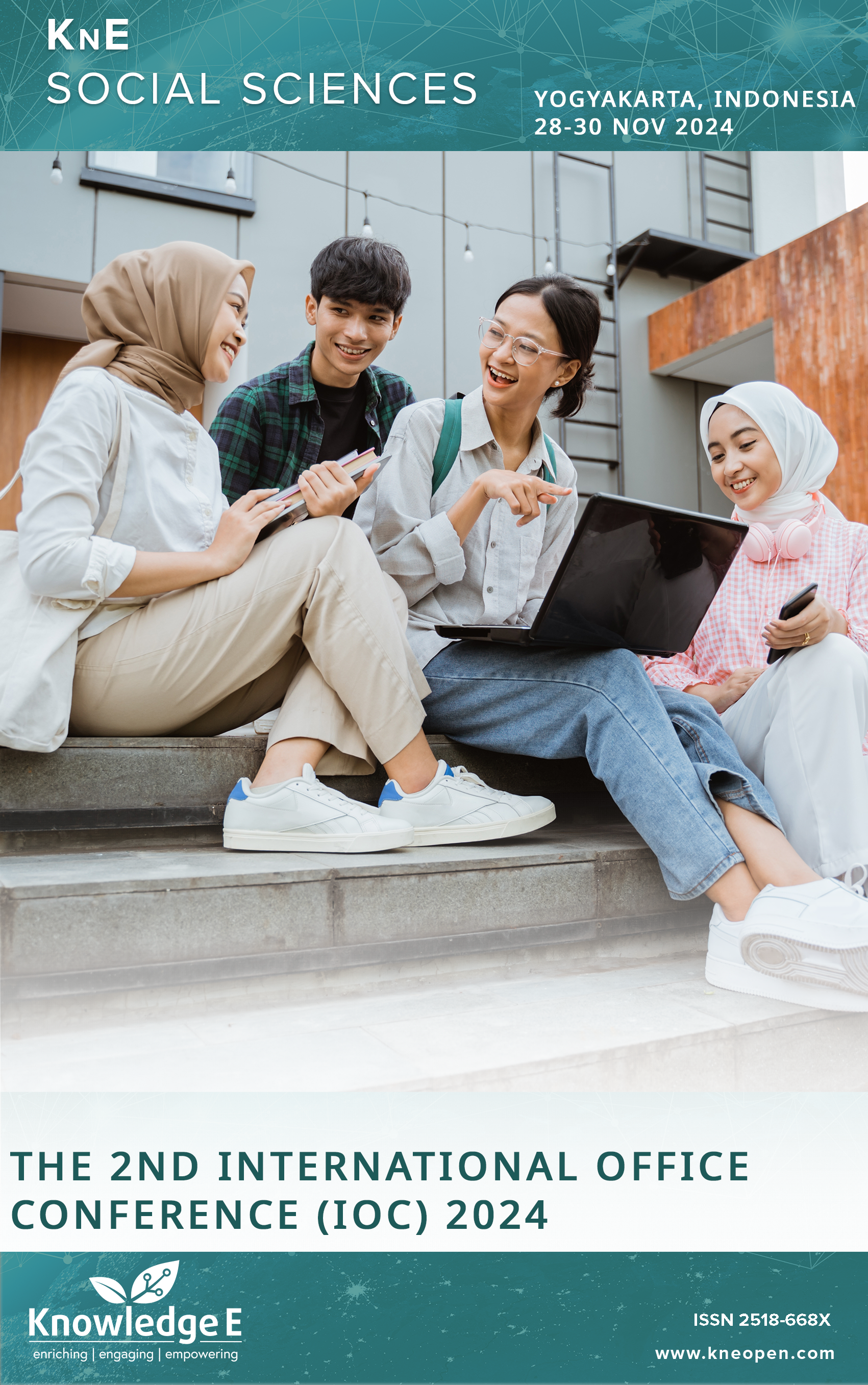Unleashing the Power of Play: A Digital Hangman Game to Supercharge Arabic Vocabulary
DOI:
https://doi.org/10.18502/kss.v10i24.19810Keywords:
Arabic language, gamification, hangman game, teaching and learning, vocabularyAbstract
Learning Arabic as a foreign language often causes challenges for school students because of the significant differences to their mother tongue and the unappealing methods of traditional teaching and learning. This development research of online digital game application aims to develop and evaluate an innovative, simple and interactive learning method by adapting the traditional Hangman childhood game by using web-based application development technology of HTML, JavaScript and CSS. The development methodology of this application involves an iterative process between needs analysis, designing, developing, and testing prototypes to ensure that the game produced is of high quality and hopefully meets the needs of students in improving their mastery of Arabic vocabulary. The Hangman digital game that was developed is expected to overcome non-interactive traditional learning methods, with aim to increase students’ motivation in mastering their Arabic vocabulary. The results of the study are expected to contribute to the field of Arabic education by providing an effective learning alternative that attract school students.
References
[1] Abdul Razif Z, Mohd Zaki AR. Arabic language vocabulary size and its relation with speaking skills. Jurnal Sultan Alauddin Sulaiman Shah. 2017;4(1):220–8.
[2] Ling NS, Abdul Aziz A. The Effectiveness of Game-based Learning Strategies on Primary ESL Learners’ Vocabulary Learning. International Journal of Academic Research in Progressive Education and Development. 2022;11(2):845–60.
[3] Abd. Ghani MT, Wan Daud WA. The Impact of Digital Game-Based Learning Towards Arabic Language Communication. Jurnal Komunikasi: Malaysian Journal of Communication. Jilid. 2023;39(1):407–24.
[4] Fajar M, Rachmawati M. The Effectiveness of “Gamilab” Media Online Games for Arabic Vocabulary Mastery at Junior High School. Reslaj: Religion Education Social Laa Roiba Journal. 2024;6(9):4536–55.
[5] Hartt M, Hosseini H, Mostafapour M. Game on: exploring the effectiveness of gamebased learning. Plann Pract Res. 2020;32(5):589–604.
[6] Ghamdi H, Alnajami M. A literature review on the impact of digital games on improving students’ english language writing skills. Paripex Indian Journal of Research. 2022;109-111:109–11.
[7] Al Ayub AA, Segarawati E, Komariah A, Hassan I, Thahir I, Hussein Ali M, et al. Investigating the Effect of Using Game-Based Learning on EFL Learners’ Motivation and Anxiety. Educ Res Int. 2022;2022:6503139.
[8] Yang X. (2019). A Critical Review and Analysis: What Role of ICT Plays in Improving Professional Teachers’ English Instruction? Advances in Language and Literary Studies. https://doi.org/10. 129. 10.7575/aiac.alls.. v.10n.2p.129.
[9] Richey RC, Klein JD. Developmental research methods: creating knowledge from instructional design and development practice. J Comput High Educ. 2005;16(2):23– 38.
[10] Abuhassna H, Alnawajha S. Instructional Design Made Easy! Instructional Design Models, Categories, Frameworks, Educational Context, and Recommendations for Future Work. Eur J Investig Health Psychol Educ. 2023 Mar;13(4):715–35.
[11] Dinc E. Web-based education and accessibility [IJTES]. International Journal of Technology in Education and Science. 2017;1(1):29–35.
[12] Branch RM. Instructional design: The ADDIE approach. Springer Science & Business Media; 2009. https://doi.org/10.1007/978-0-387-09506-6.
[13] Almelhes S. Gamification for teaching the Arabic language to non-native speakers: a systematic literature review. Front Educ (Lausanne). 2024;9:1371955.
[14] Wang F, Hannafin MJ. Design-based research and technology-enhanced learning environments. Educ Technol Res Dev. 2005;53(4):5–23.
[15] Abdul Ghani MT, Hamzah M, Wan Daud WA, Muhamad Romli TR. The Impact of Mobile Digital Game in Learning Arabic Language at Tertiary Level. Contemp Educ Technol. 2022;14(1):ep344.
[16] Rakasiwi IH, Rachmawati M. The Effect of Crossword Puzzle Media on Writing Skills in Arabic Language Learning. Jurnal Studi Guru Dan Pembelajaran. 2024;7(3):1102–11.
Published
How to Cite
Issue
Section
License
Copyright (c) 2025 Mohd Zaki Shahabuddin, Fatimah Noni Muhammad, Zati Hanani Ismail, Muhammad Firdhaus Zulkifli, Zulaida Rahmi

This work is licensed under a Creative Commons Attribution 4.0 International License.

